It became fashionable to "shell" in Diesel engines — and apparently it's not a fad at all, as we've explained in this article. From saviors of the planet (even in motorsport there was pressure for regulations to favor these engines) to those guilty of all evils, it was an instant — with the precious help of the emissions scandal, no doubt.
If you want to save yourself technical explanations, I advise you to scroll to the end of the article.
So, have we all been wrong so far? Let's do it by steps. My personal car is equipped with a diesel engine, most of my friends and family have diesel cars. Eventually your car is also a Diesel. No, we haven't been wrong all this time. Consumption is actually lower, fuel is cheaper and the pleasantness of use has improved a lot over time. These are all facts.
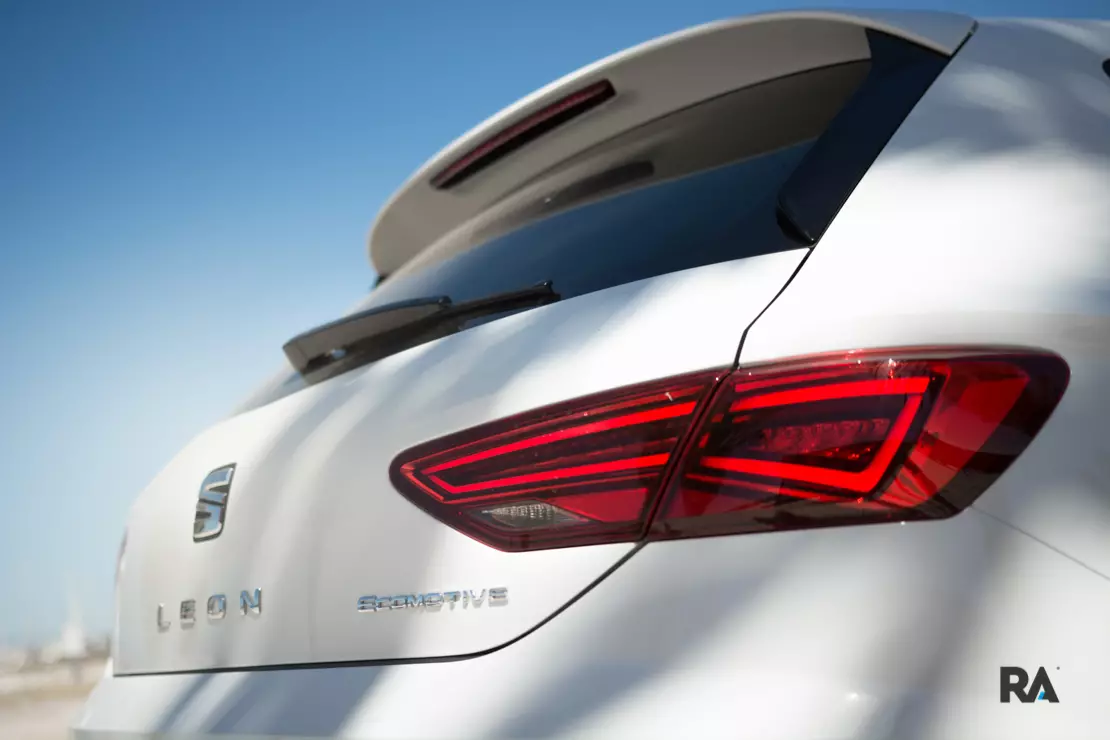
Long live Gasoline, Death to Diesels?
Diesel's loss of market share compared to gasoline engines is not only related to the issue of emissions, which will increase the price of cars equipped with diesel engines. There is another very important reason: the technological evolution of gasoline engines. So it's not just about Diesel's demerit, it's also about the actual merit of gasoline engines. The SEAT Leon 1.0 ecoTSI Ecomotive is one of the visible faces of this evolution.
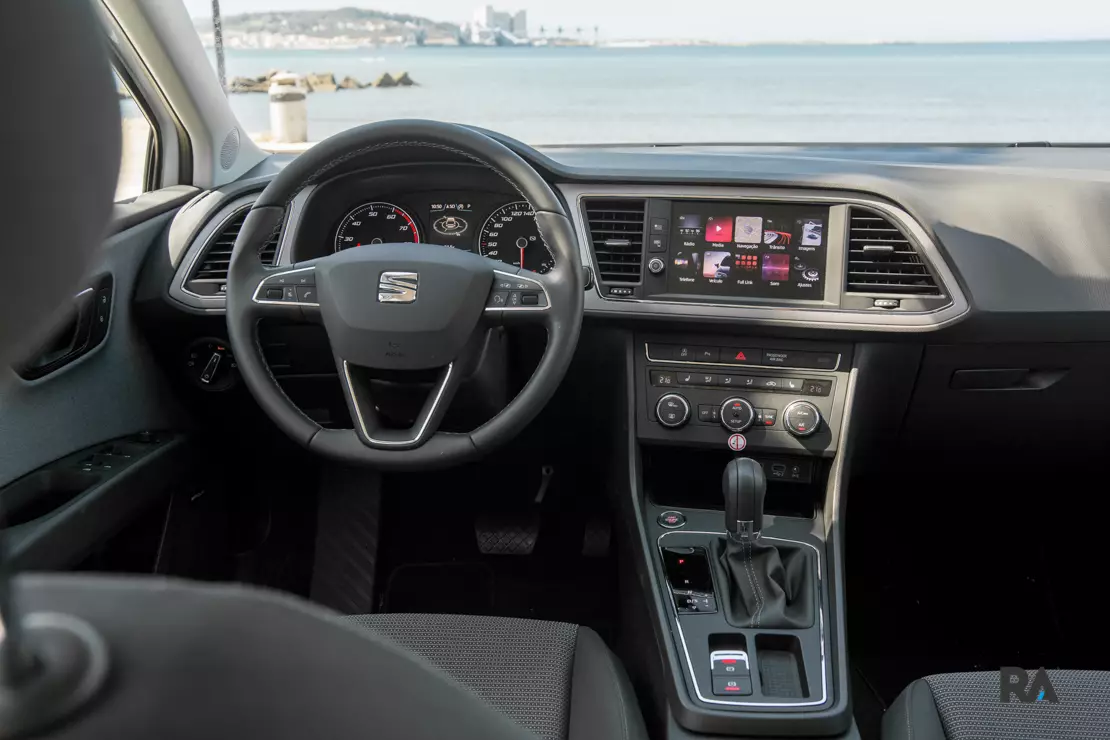
It's cheaper, has moderate consumption and is more pleasant to drive than its diesel counterpart, namely the Leon 1.6 TDI engine — both develop 115 hp of power. In the days I drove this SEAT Leon 1.0 ecoTSI Ecomotive I confess that I didn't miss the 1.6 TDI engine. The petrol brother is even faster at 0-100 km/h — a measure that in “real life” is worth what it's worth…
And what is the 1.0 ecoTSI engine worth in real life?
Equipped with the 7-speed DSG dual-clutch gearbox, this SEAT Leon 1.0 ecoTSI Ecomotive fulfills 0-100 km/h in just 9.6 seconds. But as I wrote above, this measure is worth what it's worth… in "real life" nobody makes such starts. True?
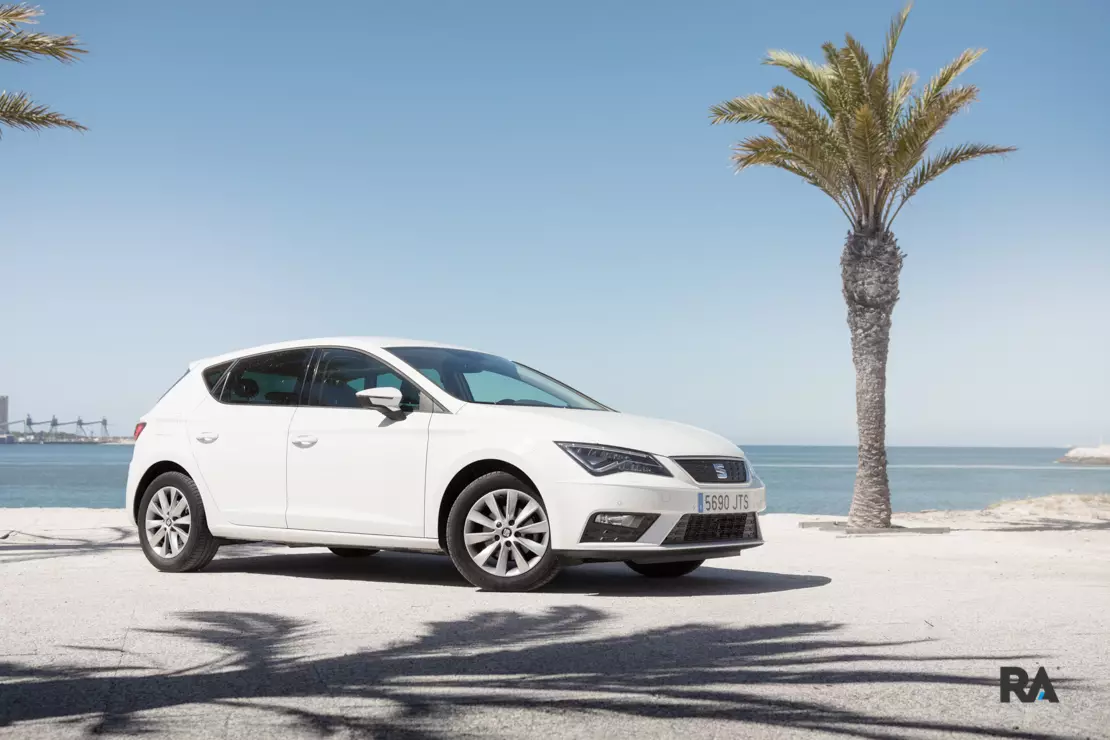
It was the linearity of the 1.0 TSI engine and the ease of achieving low consumption that won me over — now let's get to the sensations behind the wheel. A compliment that could be extended to the equivalent 1.0 Turbo engines from Hyundai (the smoothest), Ford (the most «full») and Honda (the most powerful). But about those I'll talk about in the respective tests, let's focus on 1.0 TSI of this SEAT Leon.
This three-cylinder engine that powers the SEAT Leon 1.0 ecoTSI Ecomotive is small in size but not in the technology it employs. To cancel out the typical vibrations of engines with this architecture (three cylinders) there was a worthy effort by VW.
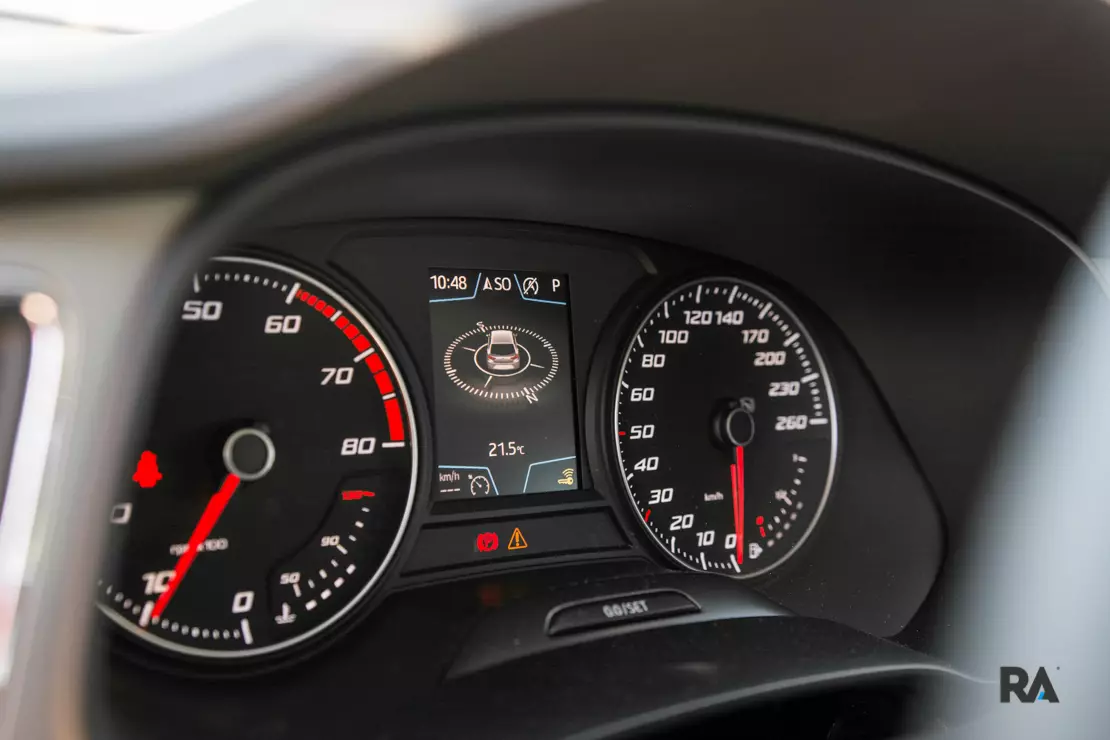
Both the cylinder block and cylinder head are constructed of aluminum. The exhaust manifold is integrated in the cylinder head (to improve the flow of gases), the intercooler is integrated in the intake manifold (for the same reason) and the distribution is variable. To give “life” to such a small displacement, we found a low-inertia turbo and a direct injection system with a maximum pressure of 250 bar — I put this value just to please those who like specific values. It is this source of solutions that is responsible for the 115 hp of power.
As for the aforementioned smooth operation, the “culprits” are others. As we know, three-cylinder engines are unbalanced by nature, which requires — in most cases — the use of balance shafts that increase the complexity and cost of the engines. In this 1.0 ecoTSI engine, the solution found was another one. The engine of the SEAT Leon 1.0 ecoTSI Ecomotive uses a crankshaft with counterweights, flywheel inertia dampers (to reduce transmission vibrations) and specific bell blocks.
sensations behind the wheel
The result is objectively good. The 1.0 TSI engine is smooth and “full” from the lowest revs. But let's get back to concrete numbers again: we are talking about 200 Nm of maximum torque, constant between 2000 rpm and 3500 rpm. We always have an engine under the right foot.
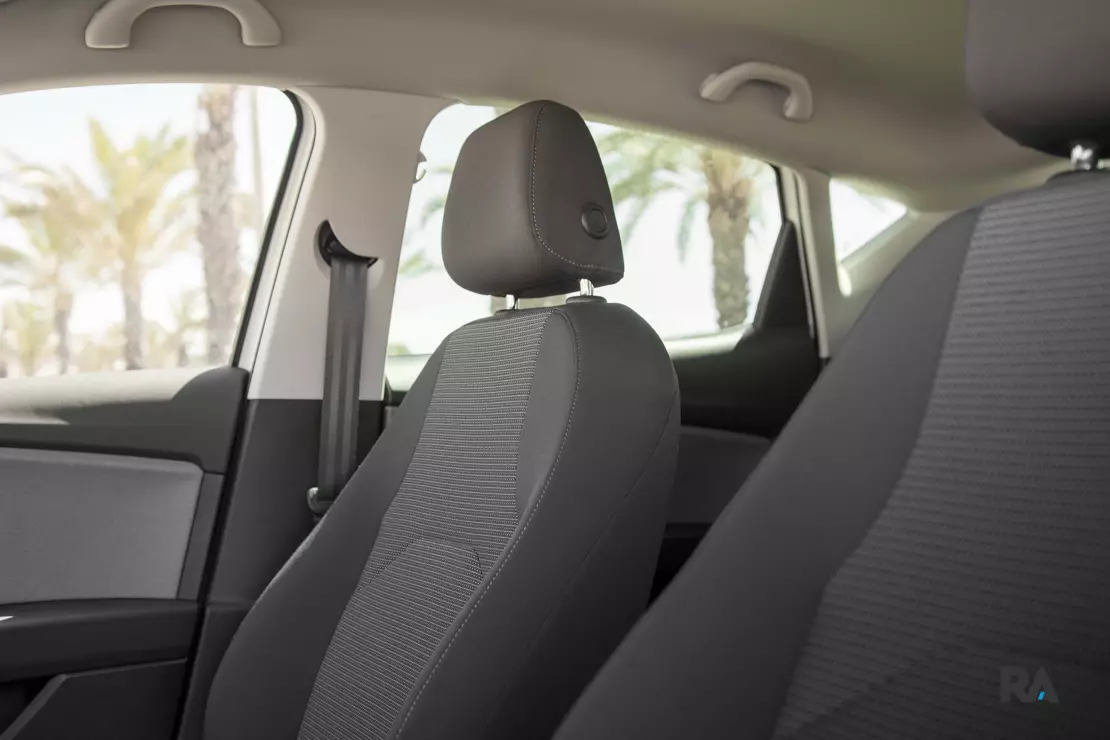
In terms of consumption, it is not difficult to reach values around 5.6 liters per 100 km on a mixed route. The SEAT Leon 1.6 TDI consumes appreciably less than a liter of fuel on an equivalent journey — but I didn't want to make this article a comparison, which it isn't. And to put an end to the comparisons, the Leon 1.0 ecoTSI costs significantly less than 3200 euros less than the Leon 1.6 TDI. A differential that can be used for many liters of gasoline (2119 liters, more specifically).
As for Leon himself, he is an “old” acquaintance of ours. With the recent facelift operated by the brand, it gained a set of new driving support technologies that are mostly relegated to the list of options. The interior space remains sufficient to take on family obligations without compromising on the ease of driving (and parking!) in the city. I particularly liked this setup with low-friction tires and a higher profile. Increases in-flight comfort without compromising dynamic performance.
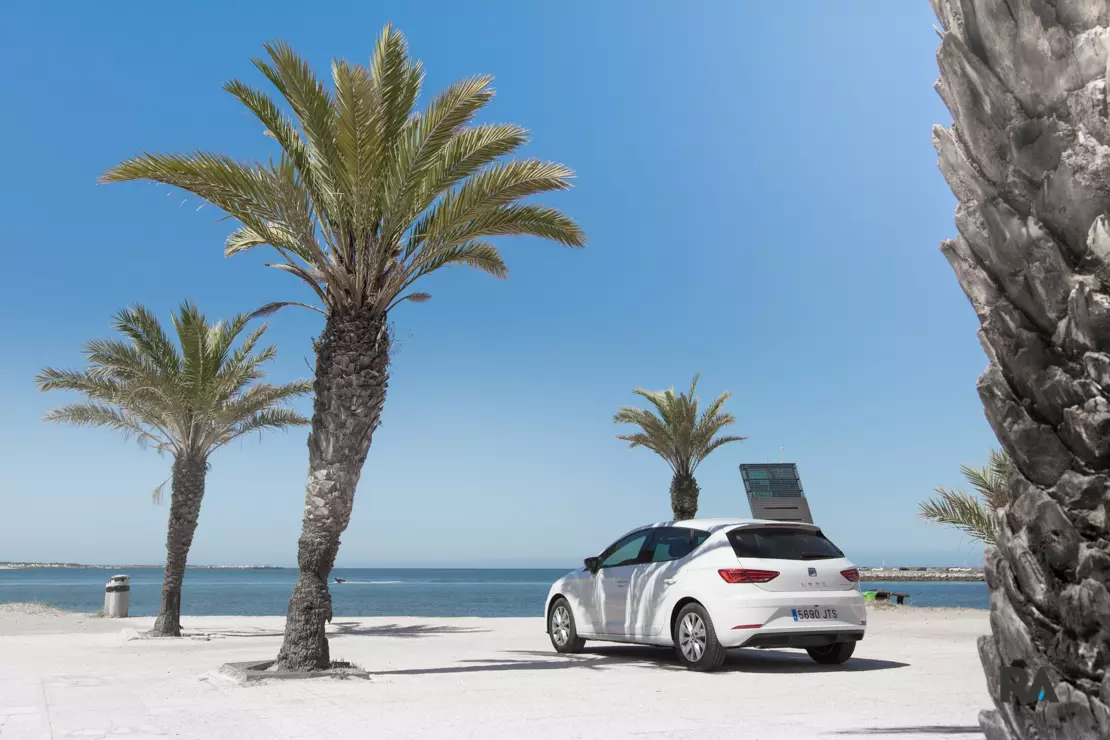
To summarize this essay in one sentence, if it were today, perhaps I would not opt for a diesel engine. I drive about 15,000 kilometers a year, and a gasoline engine is almost always more pleasant to use than a diesel engine — with no honorable exceptions.
Now it's a matter of doing the math, because one thing is certain: gasoline engines are getting better and diesel engines are getting more and more expensive.
